1. Toilet Papering Houses After Homecoming

In many small towns, “TP-ing” someone’s house is practically a seasonal ritual during homecoming week. Teenagers sneak out at night to cover trees, cars, and rooftops in streams of toilet paper. To outsiders, this might look like vandalism, but in these communities, it’s more of a mischievous prank than a crime. The mess is usually cleaned up quickly, and often the families take it in stride as part of the tradition.
The reason it survives is because homecoming in small towns isn’t just a school dance—it’s a full-blown community holiday. The football game, the parade, and the pep rallies all become an excuse to celebrate, and TP-ing is woven into that culture. Parents may even joke about their own houses being targeted when they were teens. It’s one of those customs that outsiders don’t quite believe until they see rolls of Charmin hanging from the trees.
2. Dairy Queen as the Town Hub
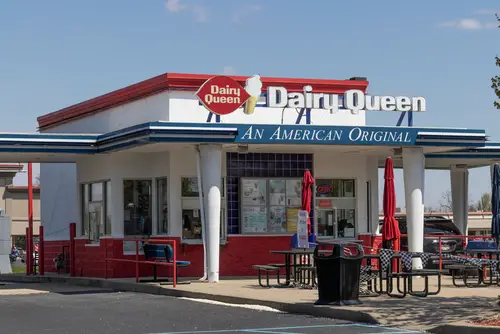
In rural America, a Dairy Queen isn’t just a place to get ice cream—it’s the gathering spot for the entire community. On Friday nights after football games, you’ll find students, parents, and grandparents all lined up for Blizzards and burgers. Outsiders might think it’s odd that fast food could be so central to small-town life, but it’s the reality in places with few options. The DQ parking lot often becomes the unofficial town square.
The reason this sticks is that small towns often lack a variety of hangout spots. Chain restaurants fill the social void, and Dairy Queen in particular has a nostalgic feel that makes people keep coming back. It’s not unusual for townsfolk to reminisce about spending hours there as teenagers. For people from bigger cities, it’s surprising to realize that one ice cream shop can double as a community center.
3. High School Football as a Civic Event
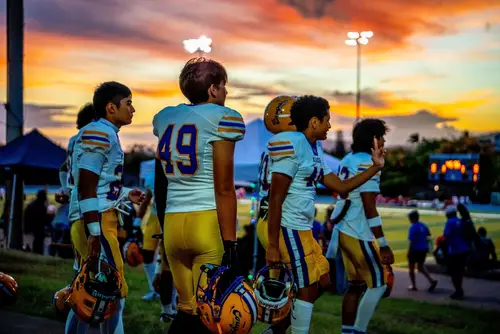
In many small towns, Friday night football isn’t just a game—it’s the main event of the week. Businesses close early, streets empty out, and the stadium lights become the beacon of the entire community. Outsiders might scoff at the intensity, but for locals, it’s the heartbeat of town life. Even those with no kids in school turn up to watch.
This devotion exists because the high school team often represents more than sports—it’s about identity and pride. In places without professional teams or major colleges nearby, the high school athletes are the local stars. Rivalries with neighboring towns can stretch back generations, giving each matchup a deeper meaning. To someone from outside, it can feel like stepping into a movie set.
4. Driving Tractors to School
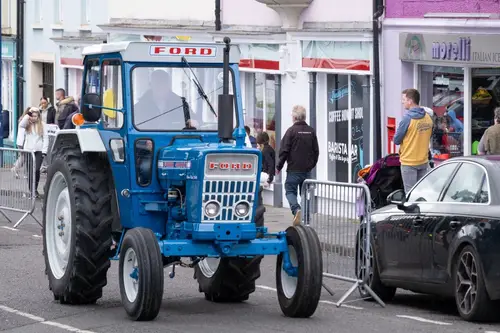
In farming towns, it’s not unusual to see a line of tractors parked outside the high school during special spirit weeks or even on random days. Students with farm responsibilities might drive their tractors instead of cars, and nobody bats an eye. To outsiders, this seems like a quirky exaggeration, but it’s completely normal in rural communities. The sight makes perfect sense where farming is central to daily life.
The reason it happens is simple—tractors are just another mode of transportation when you live on a farm. Some schools even host “Drive Your Tractor to School Day” as a lighthearted tradition. It’s a way for students to show pride in their agricultural roots and poke fun at their lifestyle at the same time. Outsiders often think this is a joke until they see a John Deere in the student lot.
5. Honor System Produce Stands
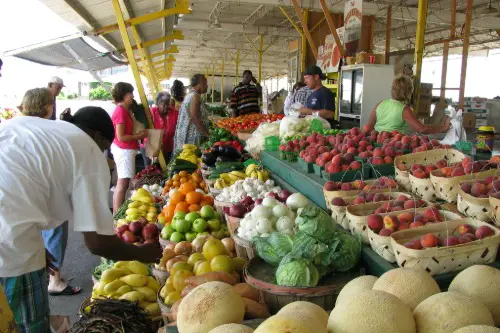
Small towns are full of roadside stands selling sweet corn, tomatoes, or fresh eggs with nothing more than a coffee can for payments. Customers take what they want and leave cash behind, with no one watching. To city dwellers, this seems like an invitation for theft, but in small towns, trust is part of the culture. These honor system stands work because everyone knows everyone.
The reason they survive is because the economy in rural areas still leans on personal relationships. Farmers and gardeners depend on their neighbors’ honesty, and most folks don’t want to risk their reputation over a few ears of corn. These stands aren’t just about food—they’re about reinforcing community trust. Outsiders are often shocked that they’re still thriving in the age of surveillance cameras.
6. Entire Towns at the County Fair
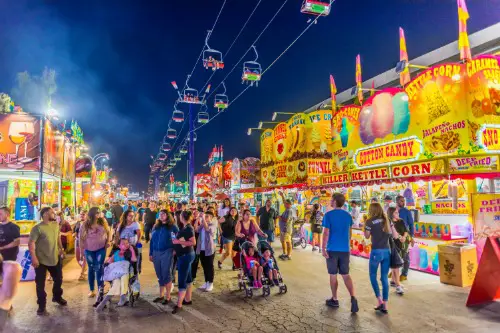
For many small towns, the county fair isn’t just an event—it’s the highlight of the year. Families plan vacations around it, schools may adjust schedules, and nearly every resident attends. Outsiders might think fairs are just about fried food and carnival rides, but small-town fairs are cultural showcases. Livestock competitions, quilt displays, and pie contests are treated with real seriousness.
The reason fairs are so central is because they combine tradition, agriculture, and entertainment into one communal gathering. They’re places where kids show off 4-H projects and adults reconnect with old friends. The fairgrounds often become the town’s biggest social stage. To someone from outside, the level of investment in a “small” event can be mind-boggling.
7. Church Suppers as Social Events
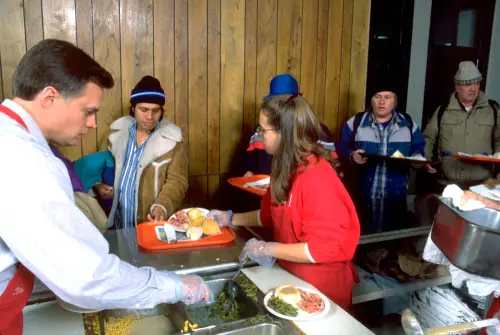
In small towns, church basements often double as dining halls for massive community suppers. These gatherings are about more than food—they’re fundraisers, reunions, and town meetings rolled into one. Outsiders may find it strange that nearly everyone attends regardless of faith, but in many rural places, the church is the only community hub. People line up for homemade casseroles, pies, and coffee served in Styrofoam cups.
The reason this tradition is strong is that food brings people together, and churches are some of the few places big enough to host. Money raised often goes to local needs, which strengthens the sense of purpose. Entire families volunteer, from grandparents stirring chili to kids refilling water pitchers. For visitors, the warmth and informality can feel like stepping back in time.
8. Leaving Keys in the Ignition

In some small towns, it’s common to leave car keys in the ignition or even the house unlocked. Outsiders think this sounds reckless, but locals argue that theft is almost nonexistent. The assumption is that everyone knows each other, and a stranger poking around would stand out immediately. For people from cities, it’s almost hard to believe.
The reason it works is that trust and familiarity are stronger than fear. Cars aren’t seen as high-risk targets when the whole town could identify who borrowed one. Some people even see it as a courtesy in case someone needs to move the vehicle. While this tradition is fading, it’s still surprising to outsiders who stumble across it.
9. High School Graduation as a Town-Wide Party
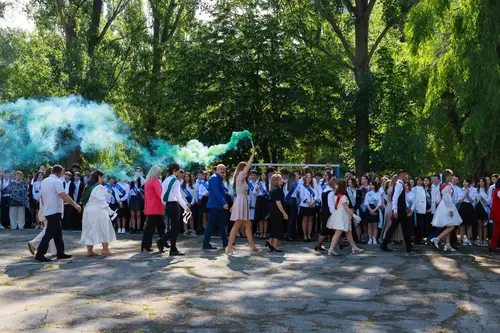
In small towns, graduation isn’t just a milestone for students—it’s a community celebration. The whole town may pack into the gymnasium or football field to watch every student cross the stage. Outsiders might be shocked to see grandparents, neighbors, and shop owners all in attendance. The number of graduates is often small enough that each one feels like a collective accomplishment.
The reason it’s so celebrated is that high school graduation often marks the transition to adulthood in communities where not everyone leaves for college. It’s a moment of pride not just for families but for teachers and community members who’ve known the students since childhood. Graduation parties may turn into open-house events where half the town stops by. To outsiders, it feels incredibly personal compared to urban ceremonies.
10. Volunteer Firefighters as Local Heroes
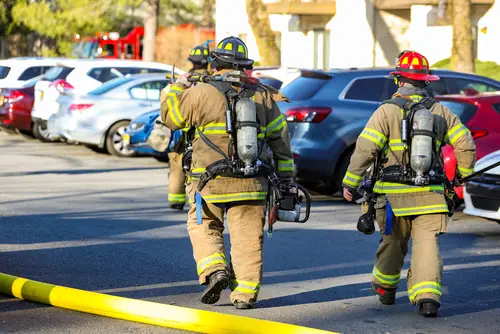
In small towns, most fire departments are staffed entirely by volunteers. These men and women often drop what they’re doing—whether it’s farming, teaching, or running a shop—to respond to emergencies. Outsiders might assume firefighting is always a paid profession, but in rural areas, it’s the backbone of public safety. Sirens going off during dinner might mean half the table leaves immediately.
The reason this works is because the town rallies behind them. Firefighter pancake breakfasts, chili feeds, and fundraisers keep departments afloat. Kids grow up idolizing local volunteers the way city kids look up to pro athletes. To outsiders, the idea of neighbors literally saving neighbors can feel like a piece of Americana from another era.
11. Quirky Annual Festivals
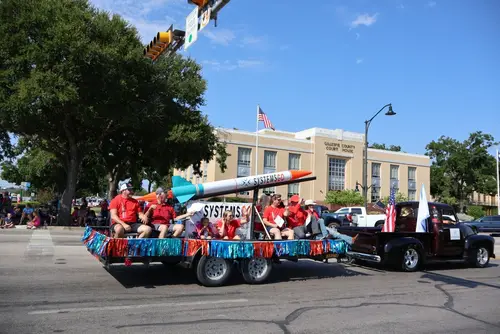
Small towns are famous for throwing festivals around the most unexpected themes. There are pickle festivals, testicle festivals, and even one dedicated entirely to mushrooms. Outsiders often think these are jokes until they see them in action, complete with parades, costumes, and contests. These festivals may sound silly, but they’re deeply tied to local culture or history.
The reason these thrive is because they give towns a unique identity and attract visitors. Residents embrace the theme wholeheartedly, no matter how odd it seems. These celebrations often provide an economic boost alongside the fun. To an outsider, it can feel surreal—but locals see it as pure pride in their hometown.
12. Funeral Processions That Stop Traffic
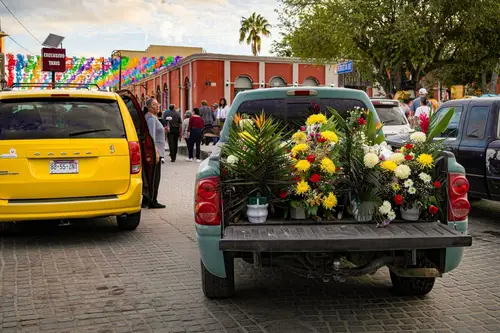
In many small towns, it’s customary for all traffic to pull over and stop when a funeral procession passes by. Outsiders might see this as old-fashioned or unnecessary, but locals view it as a sign of deep respect. Even drivers who don’t know the deceased will pause, remove their hats, or bow their heads. It’s a quiet but powerful community ritual.
The reason it remains is that small towns value gestures of shared humanity. Death affects everyone in close-knit places, and honoring the departed is seen as a civic duty. This practice creates a sense of dignity that outsiders may find moving. It’s one of those customs that feels almost ceremonial in its simplicity.
This post 12 Small Town Customs That Outsiders Think Are Made Up was first published on American Charm.


